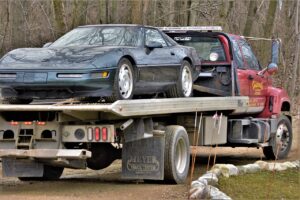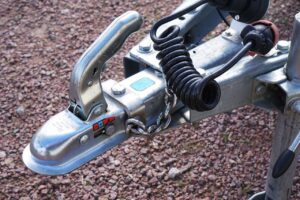Maintaining your trailer wiring harness is crucial for ensuring a safe and efficient towing experience. A well-maintained wiring harness ensures that all electrical components, such as lights and brakes, function correctly, preventing accidents and costly repairs. This guide will provide you with everything you need to know about trailer wiring harness maintenance, including regular inspections, cleaning methods, troubleshooting common issues, and tips for extending the lifespan of your harness.
Why Maintenance Matters
The wiring harness is the backbone of your trailer’s electrical system, connecting the trailer’s lights, brakes, and other electrical components to the towing vehicle. Over time, exposure to the elements, physical wear and tear, and electrical issues can degrade the harness. Regular maintenance helps identify and address problems early, ensuring safety and reliability on the road.
Regular Inspections
1. Visual Inspection:
- Frequency: Monthly
- What to Look For: Check for visible damage such as frayed wires, cracked insulation, loose connections, and corrosion on connectors. Inspect the entire length of the harness, including areas that may be hidden or hard to reach.
2. Functional Testing:
- Frequency: Before each trip
- What to Test: Verify that all lights (brake, turn signals, tail lights, reverse lights) and electric brakes are functioning correctly. Use a trailer wiring tester or connect the trailer to the towing vehicle and perform a walk-around inspection.
3. Connector Inspection:
- Frequency: Monthly
- What to Look For: Ensure connectors are clean and free from dirt, debris, and corrosion. Check for a secure fit and proper alignment of the pins.
Cleaning Methods
1. Cleaning Connectors:
- Tools Needed: Electrical contact cleaner, small brush, clean cloth
- Steps:
- Disconnect the harness from the towing vehicle.
- Spray electrical contact cleaner onto the connectors.
- Use a small brush to gently scrub away any dirt, debris, or corrosion.
- Wipe the connectors with a clean cloth.
- Ensure the connectors are completely dry before reconnecting.
2. Cleaning the Harness:
- Tools Needed: Mild soap, water, soft cloth
- Steps:
- Mix mild soap with water.
- Dip a soft cloth into the soapy water and wring out excess water.
- Gently wipe down the wiring harness, being careful not to soak it.
- Dry the harness with a clean, dry cloth.
Troubleshooting Common Issues
1. Dim or Flickering Lights:
- Possible Causes: Poor ground connection, corroded connectors, damaged wires
- Solutions: Clean and secure the ground connection, clean connectors, and inspect and repair any damaged wires.
2. No Lights or Brakes:
- Possible Causes: Blown fuse, disconnected or damaged wires, faulty connectors
- Solutions: Check and replace fuses, inspect and repair wiring, and ensure connectors are clean and securely connected.
3. Intermittent Operation:
- Possible Causes: Loose connections, broken wires, corrosion
- Solutions: Tighten all connections, replace broken wires, and clean corroded areas.
Tips for Extending the Lifespan of Your Wiring Harness
1. Use Protective Coverings:
- Apply protective coverings such as split loom tubing or conduit to shield the wiring harness from physical damage and environmental elements.
2. Apply Dielectric Grease:
- Use dielectric grease on connectors to prevent corrosion and ensure a secure electrical connection.
3. Secure the Harness:
- Use zip ties or clips to secure the wiring harness to the trailer frame, preventing it from dangling or getting caught on obstacles.
4. Avoid Sharp Bends:
- Ensure the wiring harness does not have sharp bends or kinks, which can damage the wires over time.
5. Store Properly:
- When not in use, store the trailer and wiring harness in a dry, covered area to protect it from the elements.
Conclusion
Regular maintenance of your trailer wiring harness is essential for ensuring a safe and efficient towing experience. By performing regular inspections, keeping the connectors and harness clean, troubleshooting common issues, and following tips to extend the lifespan of your wiring harness, you can prevent many common problems and ensure your trailer’s electrical system functions reliably.
If you have any questions or need further assistance, feel free to contact us at Wiringlabs. Our experts are always ready to help you with your trailer wiring needs.




